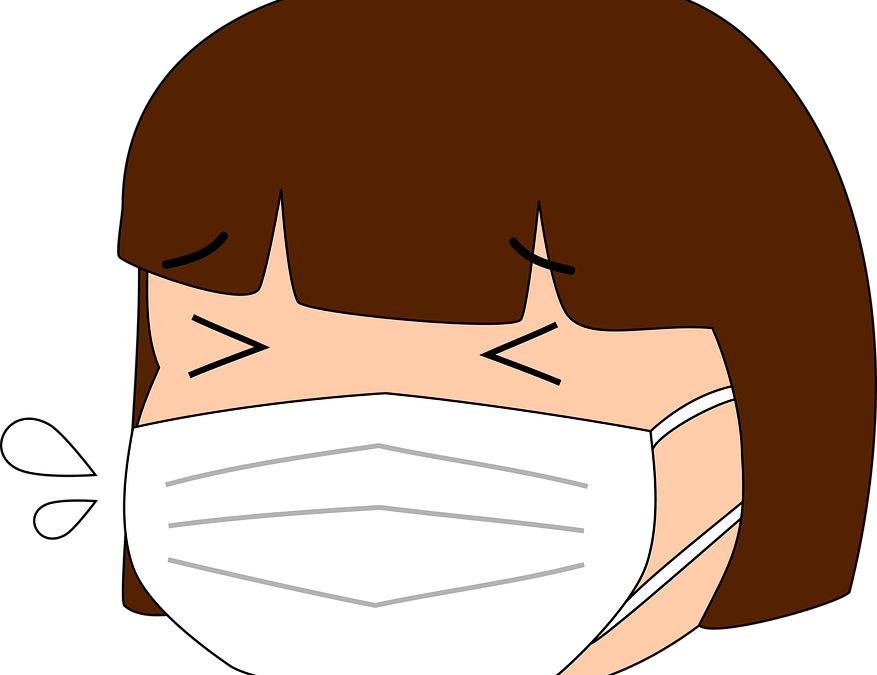Table of Contents
How to handle asthma attacks? Asthma is one of the most common chronic disorders in the world. There’s about 300 million people worldwide are affected by this illness, and its prevalence are continuously increasing more especially in children. How to handle asthma attacks? Asthma is similar to being shot. It can kill you right away or in the shortest possible time if it’s not treated immediately. Studies show that kids who died because of asthma were diagnosed with just a mild disease. So like any other illnesses, you have to prevent it or treat it as soon as you notice the symptoms so that you can have the chance of living normal and even healthy lives. In this article, you’ll learn how to handle asthma attacks?
How to Handle Asthma Attacks: It Starts with Wheezing!
How to handle asthma attacks? One of the most common symptoms is wheezing is a high – pitch whistling sound heard during expiration of patients diagnosed with asthma. It can also be heard in other types of pulmonary disease. Even if a person is not experiencing wheezing symptoms, it doesn’t exclude the fact that a person won’t have the possibility of having asthma.
Cough is perhaps the most common symptom especially among children. Certain people or children who can’t point out specifically the area of discomfort often times complain about tummy ache, so if you’re a parent and you notice that your child is always experiencing stomach problems, he/she could potentially have asthma.
Chronic Asthma
Asthma can start as early as the infancy stage while others develop it through childhood. Sometimes it will look as if the child outgrow the disease but the truth is that it never goes away, as mentioned earlier, it doesn’t mean that you are clear of the disease if you’re not experiencing any breathing problems.
How to handle asthma attacks? Asthma can also begin at later years or as people gets older. Some people experience asthmatic symptoms after a flu or cold, while some develop it after being exposed to certain environmental factors and even emotional stress. The bottom line is that regardless of your medical history, family history or health condition asthma can occur anytime at any age.
How to Handle Asthma Attacks: What to Do During Asthma Attacks
How to handle asthma attacks? An Asthma attack is when the symptoms are at its full power. It can be classified as mild and severe episodes. People diagnosed with mild asthmas can still experience sudden or slow severe attacks. Mild attacks goes away almost immediately but it often triggers a second attack that is sometimes much worse and may require medical attention.
The lining of the lung’s airways or passage swells which means that the muscle area tightens making airflow narrower. These changes ultimately blocks airflow and can cause difficulty in breathing. This is the reason why patients oftentimes need different meds for treatment, if you know the changes happening in the lungs when triggered you can have a better understanding of the disease.
How to Survive an Asthma Attack
How to handle asthma attacks? If you want to survive against asthma attacks, the old saying stays true when it comes to illnesses – prevention is better than cure but probably with a little twist for asthma patients; it’s more of “preparation is better than prevention.” You never know when these episodes can happen, and it’s guaranteed that it will happen, so the best time to plan is right there in your doctor’s office. If you have already confirmed that you have asthma, expect to have mild or severe asthma attacks from time to time. Knowing what to do once you experience an asthma attack can literally save your life, and with an expert’s aid you’ll be far more than prepared – and that’s a good thing.
Below are some tips on how you can handle asthma attacks:
- You need to continuously work with your physician in creating your Asthma Plan. Adjust and update it regularly as you go along.
- As much as possible, avoid your triggering factors. It’s best to have a plan if ever you got triggered by asthma attacks like bringing your meds or inhalers or doing breathing exercises recommended by your physician.
- Make sure that you know how, when and how often you take your medications.
- Monitor your peak flow
- Always keep your meds/inhalers handy at all times
- Always stay alert for warning signs so you can prevent it ahead of time.
Tips on How to Handle Asthma Attacks?
Here are some common tips on what to do when you suffer from an asthma attack:
Keep calm and don’t panic.
Of course this isn’t easy, but panicking will only make your breathing worse so as much as possible stay relax, after all you had it coming. If you think you’re in the “worst of the worst” situation, tell someone that you’re experiencing the symptoms, and get help if necessary.
Have a presence of mind.
Make sure to always bring your quick – relief medication with you. Educate yourself on when and how much you’re going to take so that you’ll know what to do in cases of emergency. If the handy medication or inhaler is not effective within a few minutes, call a medical help immediately. Don’t adjust the medication unless your doctor has some recommendations about it or if advised by a health professional.
Dealing with Asthma Everyday
How to handle asthma attacks? As mentioned earlier people who have asthma tends to have sensitive airways once it is triggered. This is the reason why they react to certain things, also known as asthma triggers, could cause the asthmatic symptoms to start. If a person is anywhere near their triggering factors their airways will start to get tight, swell or produce too much mucus. It often starts with a simple wheeze, an eye itch, coughing or runny nose – these are all signs of congestion and if not prevented or avoided could cause a full blown asthma attack.






 I love to write medical education books. My books are written for everyone in an easy to read and understandable style.
I love to write medical education books. My books are written for everyone in an easy to read and understandable style.